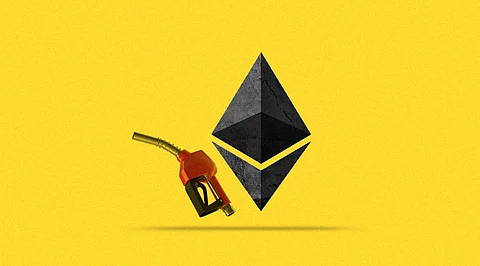

Ethereum gas and gas costs are among the themes that unavoidably come up when there is a talk about the world's second-biggest blockchain network. Ethereum gas is a fundamental component of the network that makes the Ethereum (virtual) machine tick. In this article, you get a closer look at what gas is and why it has turned into a subject of dispute inside the Ethereum community.
At its center, there is nothing unique with regards to Ethereum gas. The term alludes to the charges paid with the goal for exchanges to be prepared on the Ethereum network. It is evaluated in a unique unit called gwei, which is a little category of Ethereum's local token, Ether (one gwei is equivalent to 0.000000001 ETH). So basically, exchange charges on Ethereum are paid in Ether like Bitcoin exchange expenses are estimated in BTC. So for what reason is this additional degree of intricacy? Why thought of a different term like gas, in case it's Ether?
While Ethereum was roused by Bitcoin and was based on the standards spearheaded by the OG blockchain convention, it was intended to fill an altogether unique need. Ethereum was intended to be a broadly useful blockchain, a decentralized PC equipped for running a wide range of applications. This implies that contrasted with Bitcoin exchanges that just work with basic exchanges of significant worth, Ethereum exchanges are utilized for substantially more, for instance, for sending or setting off keen agreements that oversee decentralized applications. Having a different unit for exchange charges is a truly helpful method of estimating the computational expense of utilizing the Ethereum Virtual Machine. The EVM is the thing that empowers smart contracts to be run on Ethereum.
Everything you need to know about Ethereum gas fees
Gas expenses are one of the instruments remunerating network members for accomplishing computational work on the Ethereum network. Clients who need to move ETH or run contracts on Ethereum incorporate such expenses to boost excavators to measure and approve their exchanges quicker. Clients can likewise draw a gas limit, which demonstrates the amount they will spend on an exchange. Any gas that stays unused in exchange is gotten back to the client. As far as possible additionally fills in as a shield against troublemakers spamming the networks, as it forestalls incidental or hostile infinite circles or other misuses of computational assets due to unoptimized code.
In present times, the rising gas cost is one of the main causes of worry inside the Ethereum community. Since diggers are intrinsically boosted to deal with exchanges that incorporate higher charges, clients need to pay more gas assuming they need to stay away from extended holding up periods. The new expansion in activity on Ethereum joined with the network's restricted versatility has just exacerbated the issue. As per Etherscan, the normal Ethereum gas cost right now remains at around 54 gwei, which is almost multiple times higher than whatever it was a year prior. Also that the cost of Ether presently sits at around an unequaled high of more than $2,300, which makes exchanges on Ethereum considerably costlier.
The high gas cost is one reason driving clients and blockchain tasks to look for Ethereum choices (connection to the Ethereum options piece). Recently, Enjin, a blockchain platform for non-fungible tokens, reported that it was moving from Ethereum to a Polkadot para chain, referring to the high gas charges as the essential reason for the choice.
In the meantime, the Ethereum designer's community is thinking of various approaches to settle these issues. Extensive endeavors are centered around alleged Layer 2 arrangements like ZK rollups and Plasma, which means, to bring down the heap on the principle Ethereum chain, further developing handling limits and bringing down expenses.
Yet, the primary expectation lies with the Ethereum 2.0 venture, which is set to, in addition to other things, supplant Ethereum's energy-serious proof-of-work algorithm with a proof-of-stake agreement. The progress is relied upon to essentially decrease the measure of computational work expected to measure and approve exchanges on Ethereum.
In conclusion, it is certain that Ethereum gas will continue to be an essential part of the network and will assume a major part in deciding Ethereum's utility and usability.
Join our WhatsApp Channel to get the latest news, exclusives and videos on WhatsApp
_____________
Disclaimer: Analytics Insight does not provide financial advice or guidance. Also note that the cryptocurrencies mentioned/listed on the website could potentially be scams, i.e. designed to induce you to invest financial resources that may be lost forever and not be recoverable once investments are made. You are responsible for conducting your own research (DYOR) before making any investments. Read more here.
